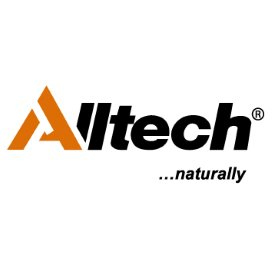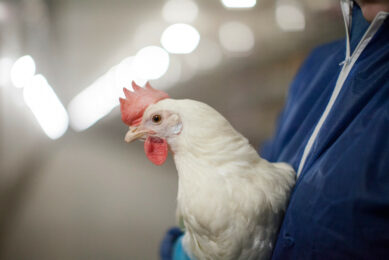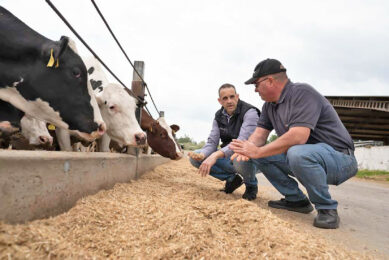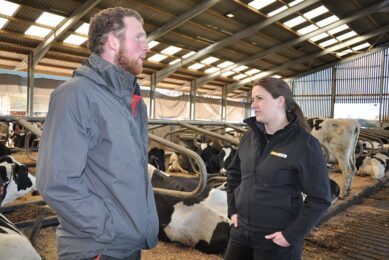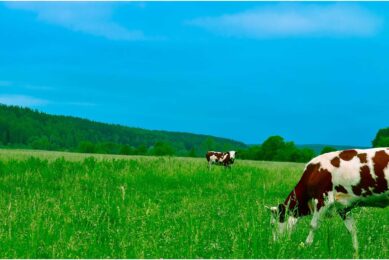Food security and sustainability in the Middle East
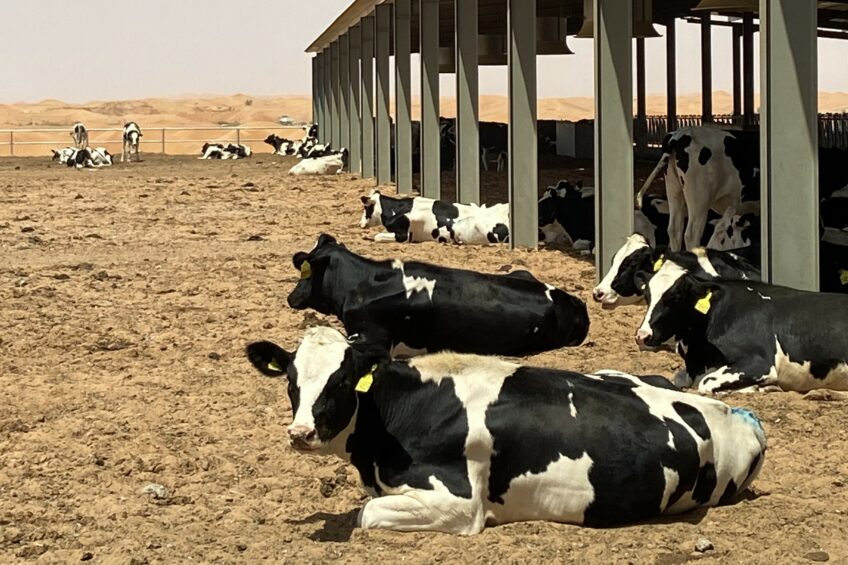
In a region where food security is of paramount importance, collaboration between the private and public sectors stands as a groundbreaking endeavour in the field of dairy farming. Situated in the heart of the Middle East, with its arid climate and limited natural resources, the United Arab Emirates faces unique challenges in ensuring a stable food supply while navigating the realities of climate change.
Food security has long been a priority for the Emirates, driven by its leaders’ vision to safeguard the nation’s ability to provide for its people. The dairy industry plays a vital role in this pursuit as dairy products are an essential component of the daily diet for many people.
Sustainability, a concept central to global conversations on climate change and resource management, is also finding firm footing in the Emirates’ dairy sector. As dairy farming, a cornerstone of agriculture, has evolved significantly in recent years, farmers here have embraced transformative approaches that improve efficiency and productivity, meeting the demands of a growing population while also addressing environmental concerns. By adopting cutting-edge technologies and methane-reducing solutions, they are setting industry benchmarks and are some of the most resource-efficient operations on the planet, showcasing a harmonious blend of economic growth and environmental stewardship.
These initiatives are occurring on the eve of COP28, the 28th United Nations Climate Change Conference. COP28, which is set for the end of the year in Dubai, will bring together leaders, policymakers and experts from around the world to discuss and formulate strategies to combat climate change.
The COP28 presidency, represented by Mariam Almheiri, who serves as the UAE’s minister of climate change and the environment and also as COP28 food systems lead, called on governments to demonstrate leadership by signing the first-ever Leaders Declaration on Food Systems, Agriculture and Climate Action during the Food Systems Summit in Rome. This collaboration resonates with the Emirates’ aspirations to be a model for balanced progress.
Measuring the impact
Amid escalating calls for a shift towards environmentally responsible ingredients, Alltech has innovated a Feeds EA model as part of its accredited Alltech E-CO2 service. This pioneering model serves as a valuable resource for feed manufacturers and producers, empowering them to gauge the ecological footprint of their feed production.
Notably, feed has the potential to influence a substantial 80% of a farm’s carbon footprint, since it affects both direct emissions stemming from production and feed transportation and indirect emissions linked to animal production. However, it is important to note that the extent of this impact varies based on the species and the operational system in play.
A central revelation from the work undertaken in the Emirates underscores the compelling connection between feed conversion efficiency (FCE) and carbon footprint. Recent work with a large farm in the Emirates has uncovered an 8% reduction in emissions intensity over the past five years through increasing efficiency. Though discerning noteworthy correlations can be challenging due to numerous variables in the intricate tapestry of carbon data, published scientific studies have consistently shown a robust association between FCE and emissions intensity. The pivotal role of feed efficiency in minimising carbon footprint is unmistakable.
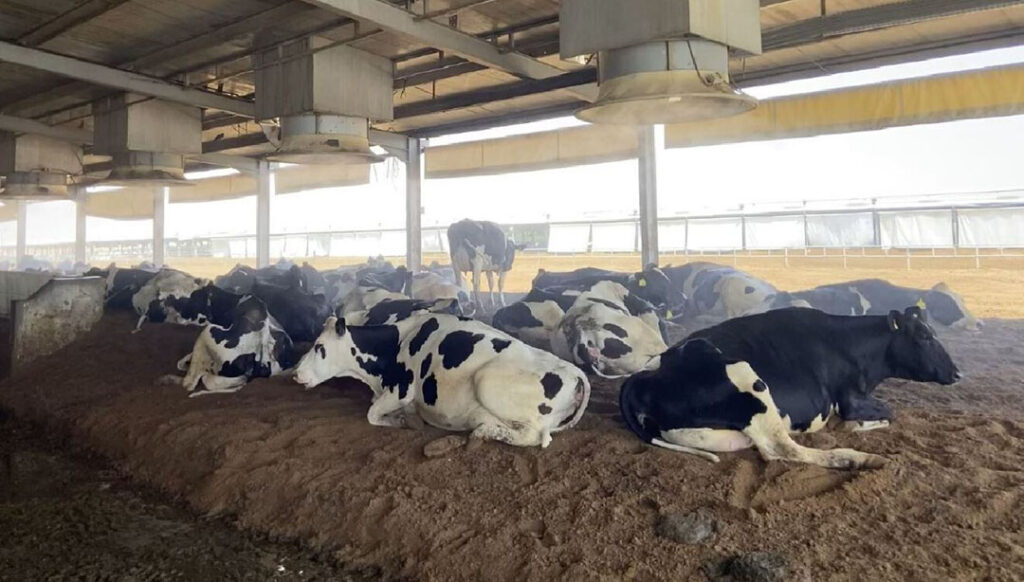
Yet, a holistic strategy must also reduce the carbon footprint associated with individual feed ingredients. This is exemplified by the case of soy, a notably problematic ingredient due to its associated land use change burden. While an outright ban on soy is often impractical, a 3-pronged approach to its management is emerging as a viable alternative: first, enhance protein efficiency to optimise the crude protein percentage in the ration; second, replace as much soy as possible with lower carbon alternatives; and, finally, procure deforestation-free and conversion-free soy.
The Feeds EA model equips feed manufacturers with the means to produce and promote more sustainable feed options and enables farmers to consciously choose diets that have less environmental impact. This avenue is especially significant in markets where environmental considerations are paramount and farm gate prices are intrinsically tied to sustainability metrics.
Decreasing methane
There has been much talk recently on the development of methane-reducing compounds that can be fed to cattle to reduce the overall burden of emissions from the livestock sector.
Agolin Ruminant is a nutritional solution consisting of a blend of essential oils that support herd performance, profitability and sustainability. The addition of Agolin Ruminant is welcomed in the Middle East, where many commercial dairy farms already deploy Alltech’s nutritional solutions Optigen and Yea-Sacc, which have been proven to support an increase in performance and support sustainability goals.
Increasing milk and meat production while using the same feed can indeed decrease a farm’s carbon footprint while yielding a greater food supply, which is crucial in places like the Emirates and in today’s global context. Transitioning to a more environmentally friendly diet can amplify these benefits, but it necessitates a thoughtful and forward-looking strategy. Since sustainability is a multifaceted challenge, it demands an all-encompassing solution.


